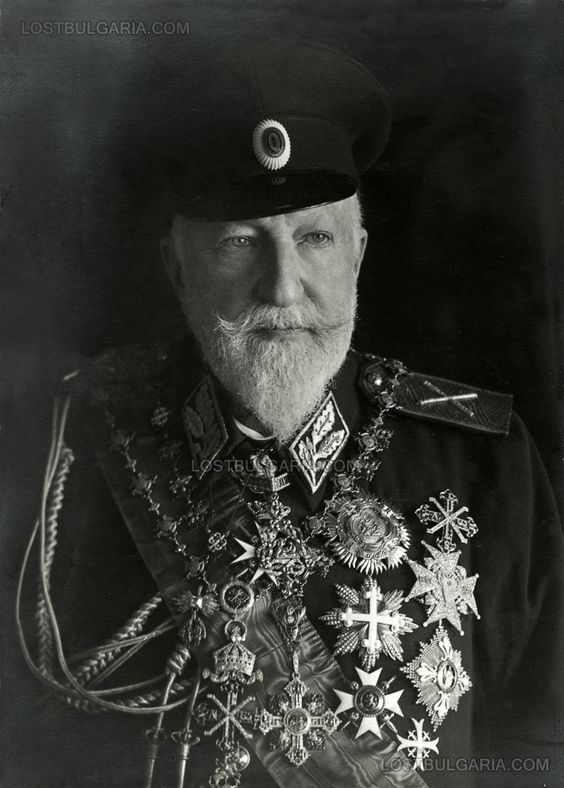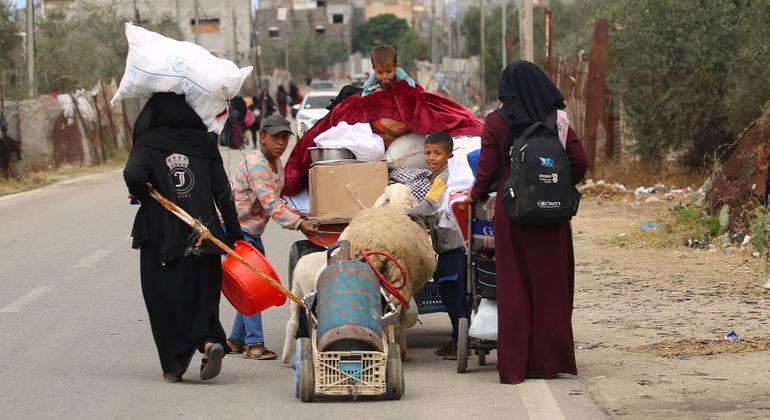Fierce battles have intensified between the Myanmar military and the Arakan Army, an ethnic armed group, displacing tens of thousands of people in Buthidaung and Maungdaw townships in recent days.
An estimated 45,000 Rohingya have reportedly fled to an area on the Naf River near the border with Bangladesh, seeking protection. Over one million Rohingya are already in the country, having fled past purges.
Serious allegations
The UN human rights office, OHCHR, has received “frightening and disturbing reports” of the impacts of the conflict, said Spokesperson Liz Throssell.
“Some of the most serious allegations concern incidents of killing of Rohingya civilians and the burning of their property,” she told journalists in Geneva.
OHCHR said Buthidaung has been largely burned, citing testimonies, satellite images and online videos.
Information received indicates that the burning began on 17 May after the military had retreated from the town and the Arakan Army claimed to have taken full control.
Civilians flee Buthidaung
“One survivor described seeing dozens of dead bodies as he fled the town,” said James Rodehaver, OHCHR Myanmar Team Leader, speaking from Bangkok .
“Another survivor said that he was among a group of displaced persons, numbering in the tens of thousands, who attempted to move outside of the town to safety along the western road towards Maungdaw. But they were blocked by the Arakan Army from going in that direction.”
Survivors reported that the Arakan Army had abused them and extorted money from them as they moved towards other nearby Rohingya villages, where Rohingya already displaced by earlier attacks had previously sought shelter.
For weeks, Rohingya in these areas have described sheltering with families they do not know and not having enough to eat.
Shootings, beheadings, disappearances
OHCHR documented renewed attacks on the Rohingya by both the Arakan Army and Myanmar military, the Tatmadaw, in the weeks leading up to the burning of Buthidaung.
“Of course, many of these were as a result of airstrikes perpetrated by the military as well as other attacks perpetrated by unmanned aerial vehicles, or drones,” Mr. Rodehaver said.
“We’ve also received reports of shooting at unarmed fleeing villagers. We have confirmed at least four cases of beheadings and multiple enforced disappearances of individuals, as well as several villages and homes that have been burned.”
Risk of expansion
OHCHR sees “clear and present risks of a serious expansion of violence as the battle for neighbouring Maungdaw town has begun”, Ms. Throssell said.
The Myanmar military maintains outposts in the town and a large Rohingya community lives there, including hundreds of displaced Rohingya who moved from villages seeking safety.
End the violence
She said the UN High Commissioner for Human Rights, Volker Türk, has called for an immediate end to the violence, and for all civilians to be protected without any distinction based on identity.
“Prompt and unhindered humanitarian relief must be allowed to flow, and all parties must comply fully and unconditionally with international law – including measures already ordered by the International Court of Justice (ICJ), for the protection of Rohingya,” she added.
International action needed
Separately, the UN Special Rapporteur on the human rights situation in Myanmar warned that “thousands of innocent lives will be lost if the international community fails to respond to ominous signs of another Rohingya bloodbath in Rakhine state.”
In a statement issued on Thursday, Tom Andrews said “once again, the world seems to be failing a desperate people in their hour of peril while a hate-driven unnatural disaster unfolds in real time in Myanmar’s Rakhine State.”
The information that has emerged “more than warrants” an immediate response from the international community, he added.
Mr. Andrews urged all sides to adhere to international humanitarian law and take all steps to protect civilians, regardless of their religion or ethnicity.
A Rohingya refugee from Myanmar receives support from the UN in Bhasan Char in Bangladesh.
Support Bangladesh
Recalling that Bangladesh had opened its borders to the Rohingya after a crackdown in 2017, thus saving untold numbers of lives, he noted that once again, this generosity might be their only hope in the face of forced displacement.
He warned, however, that Bangladesh lacks the capacity to meet the demands of this crisis without the emergency intervention and support of the international community.
“Rations cuts, inadequate infrastructure, spiraling violence, and reported forced recruitment by Rohingya militant groups have threatened the lives and wellbeing of Rohingya refugees in Bangladesh,” he said.
He appealed for “an emergency infusion of funds” to both support desperate families fleeing conflict and to address the current conditions in Rohingya refugee camps.
About UN Special Rapporteurs
Special Rapporteurs are appointed by the UN Human Rights Council, which is located in Geneva.
These experts monitor and report on specific country situations or thematic issues worldwide. They are not UN staff and are not paid for their work.














